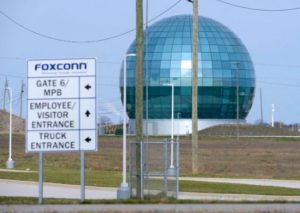In an increasingly digital world, the use of data centres and the transfer of information is becoming increasingly more present in everyday life. Indeed, the social media giant, Tik Tok, has recently been in the news surrounding the use of people’s information, thus questioning the power of its data centre. And yet for such a technical force, there is little known about how data centres work and what they possess.
When trying to find the answers to these questions, the information remained somewhat vague. Across an amalgamation of research, it is suggested that a data centre is a facility that contains physical or virtual servers, which provide access to applications and data via a communication infrastructure, securely storing data and digital information.
Despite its ambiguity, it’s hard to argue against the fact that data centres are incredibly powerful. In fact, it was recently reported that the heat generated from a washing machine-sized data centre was used to heat a swimming pool in Devon, UK. In this case, the computers are surrounded by oil to retain heat, enabling the data centre to heat the pool to approximately 30C, 60% of the time, which is an indication of the amount of energy that a single data centre emits.
In America, Microsoft has decided to take the plunge by planning a $1 billion data centre on the Foxconn site at Mount Pleasant in Wisconsin, with the hopes of having a major benefit to the Wisconsin economy. The choice of location is no surprise when you look at neighbouring pieces of infrastructure, like the major Foxconn global data centre. CEO of the Wisconsin Economic Development Corporation recently commented how Wisconsin is the ideal location for such innovative technology, due to the workforce, infrastructure, and centralised location of the state. 
So, what will this mighty store of data look like? Well, according to the plans drawn up by Microsoft, the company is set to develop a 315-acre plot of land owned by Mount Pleasant. However, approval is still required from Mount Pleasant Village Board and Racine County before the final plan can go through. If approved, Microsoft would purchase the land for $50 million, as the land is viewed as prime development.
There are many benefits to data centres, the most obvious being the storage and accessibility of masses of information. Furthermore, it helps protect businesses from power outages and disturbances. Other benefits could be drawn as data centres don’t require many employees, which increases overall efficiency and reduces costs. A noteworthy example is the case of the Potawatomi Business Development Corp, which owns a 45,000-square-foot data centre worth $30 million USD. Despite the sheer size of the operation, it only has 8 employees. This brings forward the concerns of the local community nearest Foxconn, as there are questions about how advantageous the data centre will be for employment, considering the size and investment of the centre. Although members of the local community shall be employed for the construction of the project, and the surrounding infrastructure, it is still a big concern for the people of Wisconsin.
Further opposition has occurred regarding the amount of water the data centre will require; typically, data centres use the same amount of water as small cities, due to having thousands of computers in a single isolated space generating lots of heat (as demonstrated by the Devonshire swimming pool). Consequently, masses of evaporated water is used to stop the computers from generating too much heat. Pointedly, this takes a lot of pieces of additional infrastructure, including cooling towers, pumps, chillers, humidifiers, air conditioning, and much more. Again, the water used quickly exceeds expectations, using three to five gallons of water a day. However, not all hope is lost as Microsoft opened a sustainable data centre region in 2021, announcing that it would use 100% renewable resources across all data centres by 2025. Nothing yet has been confirmed for the upcoming plans, however.
Microsoft’s proposal is a clear reminder of the rate at which the digital world expands, following trends in the use of data and information surrounding Tik Tok, as well as the capabilities of AI technology. We shall have to wait to see whether such a big investment will develop past the planning stages as Wisconsin hopes to develop its Silicon Valley-esque presence.







